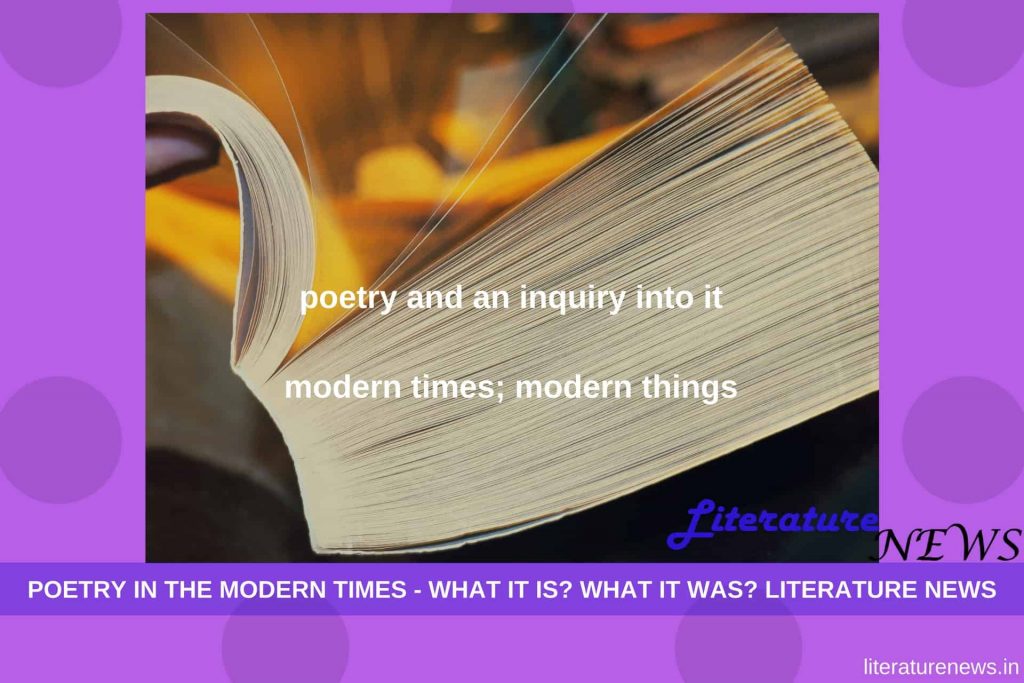Is the art of poetry writing personal? Then the follow-up question that arises is that is poetry personal? Is poetry there for the personal use? And if not personal, can poetry be public? What’s the matter there? What, in fact, poetry is today? Was it something else yesterday? Will it change tomorrow? We have loads of question to ask and limited resources to answer such questions which base mostly on abstract ideas rather than concrete facts. Poetry, at the end, seems more an idea than it seems a fact!
Defining poetry has always been the prime importance for the critics through the various centuries and decades. Dating back, we have certain scholars who tend to believe that poetry, in fact, was alive even before came ‘literary’ and that it predates the dating too. However, there are the scholars as there always were who believe that poetry is just something what poet creates. We have to, simply, believe what we have in front of us and we have the evidence for both these arguments. But, without getting into the Greeks vs Romans dilemma, I will try to present the contemporary aspects of the definition of poetry. I will try to present the most relevant things said by the poets on poetry and also what it has become today.
The Definition of Poetry – there is no definition today!
Yes, you got me right. Poetry, in the present times, has no definition at all. Anything and everything is simply poetry and it can be anything; anything means anything without any limitations on. Rhyme, rhythm, verse, form, meter, lyric and every other technicality have been replaced – we have the prose poetry with us which just leaps the entire limitation of ‘being poetry’ within the traditional norms. Today, anything that is supposed to be poetry becomes poetry!
What did they say about poetry?
“Well, write poetry, for God’s sake, it’s the only thing that matters.”
E. E. Cummings was right to take this stand. As a poet or as an enthusiast, one should not worry whether his or her writings are poetry or not. Just write it and you call it poetry and it will become poetry. Writing is the thing that matters and the world adjusts according to that. We have accommodated Eliot’s Waste Land along with Milton’s Paradise Lost and also the lyrical best of Shakespeare’s sonnets. We are too much into it!
“Poetry is the record of the best and happiest moments of the happiest and best minds.”
Percy Bysshe Shelley said this thing but too much to my disagreement. For an instance, T. S. Eliot is a direct antithesis to this logic because seldom we find the happiest mind and the happiest moments in his poems. And yet, Eliot’s poetry is not dry and dull – it’s fresh and green, poetically! Even the poems of Shelley’s friend, Keats, was not so happy and yet he is considered one among the few!
“Writing free verse is like playing tennis with the net down.”
Once again, I don’t agree too much with what Robert Frost has said. I can sense that he wants to assert the importance of rhyme and form in poetry; however, I am also one of those, as a poet, who believe in their messages rather than the post office! Form and lyric can certainly make some lines sound good but not necessarily add importance to poetry. And sometimes, poetry is left far behind just to make pace with rhyme – the choice of words affect at times, certainly. I would rather read and enjoy the beauty of free verse than merely reciting the sonorous hollow poetry.
And at last, I would like to leave my readers with the words of Dylan Thomas:
“Poetry is what in a poem makes you laugh, cry, prickle, be silent, makes your toe nails twinkle, makes you want to do this or that or nothing, makes you know that you are alone in the unknown world, that your bliss and suffering is forever shared and forever all your own.”
opinion by Amit
